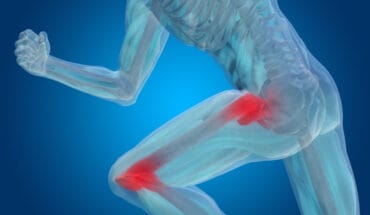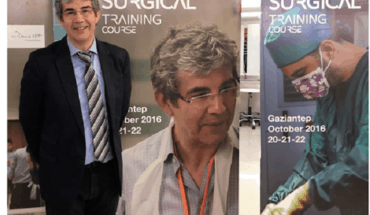On Thursday 17 January five young doctors will compete for the coveted title of Wesleyan RSM trainee of the year.
RSM Surgery Section
Presentation title:
A gremlin in the works: Reduced expression of bone morphogenetic protein antagonist Gremlin aids breast cancer progression
Special interest in breast surgery
Miss Catherine Zabkiewicz studied medicine at Guy’s King’s and St.Thomas’ School of Medicine and is a trainee in general surgery, with a specialist interest in breast surgery. Taking time out of her training programme after ST5 in order to undertake a PhD in a clinical fellow post, Miss Zabkiewicz has been granted a Royal College of Surgeons Research Fellowship for the final year of her studies.
As well as representing the college in laboratory-based research towards her PhD, she is involved in delivering surgical oncology content to medical undergraduate students and is also a collaborator in the Cancer Research Wales Breast Group. As a member of the Cardiff China Medical Research Collaborative (CCMRC) she has formed links with visiting surgeons and cancer researchers from China.
The research project
Miss Zabkiewicz initially began an MD in how a protein called Gremlin affects the behaviour of breast cancer cells. Gremlin is part of a family of proteins called bone morphogenetic proteins (BMPs), and Gremlin blocks these BMPs from interacting with BMP receptors. BMP cell signalling regulates how bones and other organs develop and is also implicated in the development of several different cancers, including breast cancer.
Treatment for early breast cancer has good outcomes, but for patients where the cancer has spread to other organs, only 15% will survive five years. The original aim of Miss Zabkiewicz’s study was to look at a possible role for Gremlin in breast cancer, and how it may influence whether breast cancer is more aggressive or more likely to spread to other organs.
Miss Zabkiewicz discovered that the laboratory at CCMRC already had some information from a cohort of breast cancer patients which seemed to show that patients with low Gremlin in their primary breast tumours had more spread to other organs (particularly bone) and was also associated with death from breast cancer. She decided to examine publicly available databases of breast tissue and found expression of Gremlin was lower in breast tumours compared to normal breast tissue.
Using breast cancer cell models to examine these associations further, Miss Zabkiewicz found that when she increased the expression of Gremlin in breast cancer cells, the cells did not grow as quickly and were less invasive compared to controls. Conversely, when she reduced Gremlin in breast cancer cells, the cells grew more rapidly and were more invasive. This seemed to corroborate the findings from breast cancer tissues and suggested that low Gremlin results in more aggressive breast cancer and a worse clinical outcome.
Next steps
Miss Zabkiewicz subsequently converted to a PhD to allow her to achieve more from this work in greater depth and to continue to pursue further research as part of an academic career. During further experiments she noticed that Gremlin influenced cell functions depending on the sub-type of breast cancer cell line. In clinical practice currently, prognosis is linked to whether certain cell receptors are present in the tumour, for example the HER2 receptor denotes aggressive tumours with poor survival. Treatments focus on blocking these receptors, but relapse of disease and treatment resistance are still problematic. Her further work is focused on whether there is a relationship between Gremlin, BMP signalling and HER2, that might be useful as a prognostic marker or therapeutic target in this sub-type of breast cancer.
Why enter for a prize?
Miss Zabkiewicz says: “Entering for prizes gives you a national and international platform to present your work and build connections with other clinicians and researchers. It enhances your clinical and research profile and certainly supported my application for the Royal College of Surgeons Fellowship. The process also allows reflection on your work, to reaffirm the aims of your project and the future directions you may take”.
“My tip for aspiring prize winners is that you do not need to overload your audience with lots of data and information. Being able to distil your work to a couple of key points is a great skill.”
- The da Vinci 5 Robot Is Set To Transform Bariatric Care: - 31st March 2025
- Beyond money: the hidden drivers fuelling child food insecurity - 31st March 2025
- Tobacco and Vapes Bill - 31st March 2025






